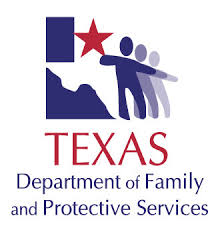It can be scary when a Texas Child Protective Services (CPS) Investigator contacts you. Understanding the investigation process and your rights can help alleviate some of the stress of the situation.
It can be scary when a Texas Child Protective Services (CPS) Investigator contacts you. Understanding the investigation process and your rights can help alleviate some of the stress of the situation.
It is essential to know if CPS workers contact you, it is likely that someone has made a report to CPS. This report is typically about that the health and welfare of your child or that your child may be in danger. If the worker is investigating a situation that involves you as the parent, it does not mean that you have done anything wrong or that you will have your children taken away nor does it say that you will have your children taken away. So remain calm during the investigation, try to understand the situation and learn how a CPS investigation is conducted.


The CPS investigator is likely to take the following steps:
It is also likely that the CPS investigator will want to examine the child’s home, and based on the type of allegations they may also wish to obtain the child’s medical records.
You have the right to show the CPS investigator that you can keep your child safe. Parents have the right to advocate for both your child and themselves. It is also essential to understand the investigative process used by CPS in Texas. Find additional information in the Parent Resource Guide published by The Supreme Court of Texas.
Family member and neighbors that can tell the CPS investigator that you are not neglectful or abusive is helpful. Your child’s teacher or doctor may also be a good source of this information. Pick people that have first-hand experience of your regular contact with your child.
If there is a specific incident that triggered the investigation, provide the CPS investigator with the names of individuals who saw the event. When there is an allegation of physical harm give the names of people who saw how the injury occurred.
The CPS worker may want to ask about your family situation. Provide any documentation requested. These documents may relate to your meeting attendance, safety plan activity, or court hearings. Attend all court hearings scheduled related to your CPS situation. It can be a highly stressful time, but remember to stay calm and respectful throughout the process.
There is no way to predict the outcome of the CPS investigation. However, being cooperative is typically beneficial in certain circumstances. The children’s safety is the primary goal of both the parent and CPS. If the report of abuse or neglect is unjustified, then the investigation will show this. If the abuse or neglect is unlikely to have occurred, then CPS will typically close your case.
If, during the CPS investigation, the investigator finds that the abuse or neglect may have occurred, then CPS will work with you to develop a safety plan. This safety plan includes resources needed to keep the children safely in the home. The parent may be asked to voluntarily place their child with another adult while the parent completes the safety plan. In this instance, the parent willingly gives their child to another person, and no court order has been involved.
In the situation that CPS finds that the child is in imminent danger, CPS can remove the child from home. Typically, Texas Child Protective Services will obtain a court order to remove the child from home. However, CPS in Texas does have the legal authority to do so without a court order if the CPS investigator feels that the situation creates an imminent danger to the child and immediate removal is necessary.
If your child is removed from your home, it does not mean that you will permanently lose custody of your child. At this stage, the court will get involved. The judge will review CPS’s decision to remove the child. During this process, you should work with Texas Child Protective Services and the courts to make the changes necessary to provide a safe home and environment for your child.
The Texas Department of Family and Protective Services has published A Parent’s Guide to Child Protective Services (CPS) Investigations. This guide may provide additional information about what the Texas Child Protective Services is looking for from parents.
If you feel that the CPS investigator made a mistake or did something wrong during the investigation, you should first try to resolve with the CPS worker or their supervisor. When you are unable to come to a solution, you can file a complaint with the Office of Consumer Affairs at 1-800-720-7777.
For more information on Texas Child Protective Services and how to work through a CPS investigation, contact the America Family Law Center.
Child Protective Services (CPS)